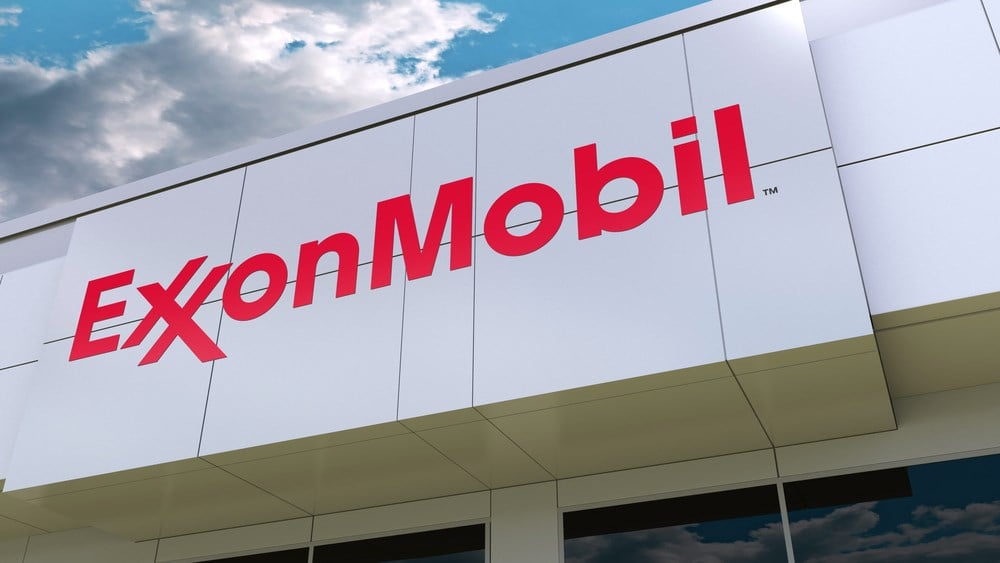
The rumors about Exxon Mobil Corp. (NYSE: XOM) being in talks to acquire Pioneer Natural Resources Co. (NYSE: PXD) turned out to be true after all.
Exxon Mobil said on October 11 that it was merging with Pioneer in an all-stock transaction valued at $59.5 billion, or $253 per share.
Shares of Pioneer closed $3.41 higher, up 1.44% on October 11, ending the session at $240.82 in monster upside trading volume.
ExxonMobil gapped down to close 3.59% lower, a drop of $3.96, to $106.49. Trading volume was more than triple the normal volume.
Deal Expected to Close in 2024
The companies said the transaction is scheduled to close in the first half of next year.
Under the terms of the agreement, Pioneer shareholders will receive 2.3234 shares of ExxonMobil for each Pioneer share when the deal closes.
The implied total enterprise value of the transaction, including net debt, is approximately $64.5 billion.
It’s the company’s biggest acquisition since Exxon acquired Mobil in 1999.
Exxon Mobil, the largest company within the Energy Select Sector SPDR Fund (NYSEARCA: XLE), has a market capitalization of $426.30 billion. It’s long been considered a blue-chip stock, as it’s a well-established, financially sound company.
Long Track Record of Dividend Increases
The Exxon Mobil dividend has increased for 40 years, landing the company a spot on MarketBeat’s dividend achievers list.
Pioneer, which is also an S&P 500 component, has a market cap of $56.15 billion.
ExxonMobil is buying Pioneer because it needs to increase its base of established oil-producing land. The deal would allow ExxonMobil to increase production on proven tracts. Already Exxon invests billions into exploration; this acquisition just gives the company one more tool in its arsenal.
It would make ExxonMobil the leading producer in the Permian Basin while improving efficiency and lowering costs.
According to Exxon Mobil, “The merger combines Pioneer’s more than 850,000 net acres in the Midland Basin with Exxon Mobil’s 570,000 net acres in the Delaware and Midland Basins, creating the industry’s leading high-quality undeveloped U.S. unconventional inventory position.”
Doubling Exxon Mobil's Permian Basin Production
Together, the companies will have an estimated 16 billion barrels of oil equivalent resource in the Permian. When the deal closes, Exxon Mobil’s Permian production volume would more than double to 1.3 million barrels of oil equivalent per day.
Rumors of the deal had been swirling since April, with analysts generally agreeing that the expansion of Exxon Mobil’s presence in the Permian Basin was a logical step.
In the release announcing the acquisition, Exxon Mobil and Pioneer also said they believe the transaction represents an opportunity for even greater U.S. energy security.
In addition, there’s potential for more exports as Europe tries to cut down its consumption of Russian oil and gas products.
Irving, Texas-based Pioneer Natural Resources has a primary focus on hydrocarbon exploration and production.
Over the years, it’s employed cutting-edge technologies and innovative drilling techniques to maximize the extraction of energy resources efficiently and sustainably.
As is common with large-cap energy companies, the Pioneer dividend yield is healthy, at 2.08%.
Fossil Fuels Not Going Away
While plenty of analysts have been forecasting that energy companies would fast-track their pivot away from fossil fuels, that move may not happen as quickly as some expect.
In an interview with CNBC, Exxon Mobil CEO Darren Woods said, “As the world looks to transition and find lower sources of affordable energy with lower emissions, fossil fuels oil and gas are going to continue to play a role over time.”
He added that the role of fossil fuels “may diminish with time. The rate of that is, I think, not very clear at this stage. But it will be around for a long time.”
The energy sector has been among S&P gainers in the past five sessions, as oil prices rise. As reported by MarketBeat, the energy sector is poised to benefit from supply-and-demand imbalances, with the additional catalyst of war between Israel and Hamas.